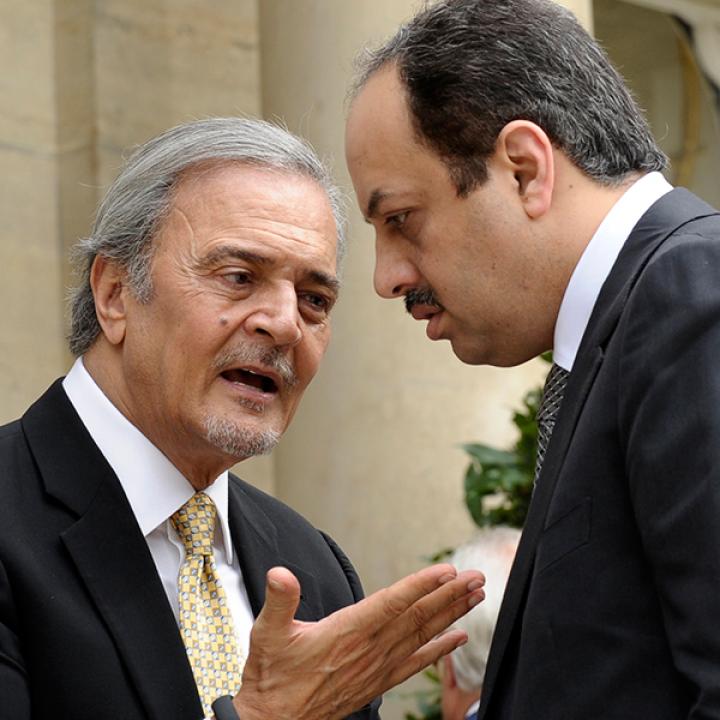

Six weeks after Saudi Arabia, Bahrain, and the United Arab Emirates announced the withdrawal of their ambassadors from Doha, signs of reconciliation are emerging.
On April 17, Qatari foreign minister Sheikh Khalid bin Mohammad al-Attiyah is expected to visit Saudi Arabia, the first show of public diplomacy between Doha and its Gulf neighbors since a row erupted over complaints of Qatari interference in their domestic affairs. Despite a March 5 announcement that Riyadh, Bahrain, and the UAE would withdraw their envoys, in reality only the Saudi ambassador was brought home. In the case of the other countries -- including Egypt, which declared it was joining the action -- envoys were away on vacation or the position was temporarily vacant.
The origin of the dispute was Qatar's apparent failure to live up to a November agreement between ninety-year-old King Abdullah of Saudi Arabia and thirty-three-year-old Emir Tamim bin Hamad al-Thani of Qatar, who had succeeded his father Hamad in June. Well before that Kuwait-mediated accord, the two countries had been at odds for decades, ever since Qatar emerged from being a Saudi vassal state in the 1970s. Their mutual suspicions were reinforced in the 1990s when Hamad displaced his own father in a palace coup and Riyadh encouraged a countercoup.
Under Emir Hamad and his hyperactive foreign minister Sheikh Hamad bin Jassim bin Jaber al-Thani, Doha appeared to relish its growing reputation as a Gulf gadfly. The news arm of its satellite television service, Aljazeera, irritated many Arab governments while the weekly sermons of Muslim Brotherhood-affiliated Sheikh Yusuf al-Qaradawi often provoked outrage. At the same time, as a small state that shares huge offshore natural gas reserves with Iran, Qatar was careful to offset potential threats by eschewing criticism of Tehran and hosting the U.S. Air Force at its giant al-Udeid base.
Yet Doha apparently believed that its foreign policy posture had been tempered since last summer, after Emir Tamim's accession and his appointment of former fighter pilot Sheikh Khalid as foreign minister. Last month's ambassador recall therefore came as a surprise to Qatari officials.
The prospects of resolving the rift were improved by Doha's decision not to withdraw its own envoys, and by the fact that the two other members of the Gulf Cooperation Council -- Kuwait and Oman -- did not take part in the diplomatic threats issued by Riyadh, Manama, and Abu Dhabi. Challenges remain, though, especially since Qatar is likely unwilling to eat humble pie.
In Doha's view, the row was about Egypt rather than any interference in Gulf internal affairs. Qatar had backed Muhammad Morsi's Muslim Brotherhood government with large amounts of cash, and it regards the administration of Field Marshal Abdul Fattah al-Sisi, who helped overthrow Morsi, as contrary to the will of the Egyptian people. Unlike King Abdullah and certain other Gulf leaders, Doha seems to view its own quasi-monarchal political system as above any potential Brotherhood threats. Doha has also been in competition with Riyadh for influence among Syria's anti-Assad opposition, though it may be easing up on that posture.
Because the March crisis apparently stemmed in part from misunderstandings of what King Abdullah and Emir Tamim agreed to in November, the question now is whether Riyadh and Doha need to clarify those differences during tomorrow's meeting or just move on. Whatever the case, Washington should encourage the talks, since an improved atmosphere between Gulf neighbors could help U.S. policy on Syria and Egypt.
Simon Henderson is the Baker Fellow and director of the Gulf and Energy Policy Program at The Washington Institute.



